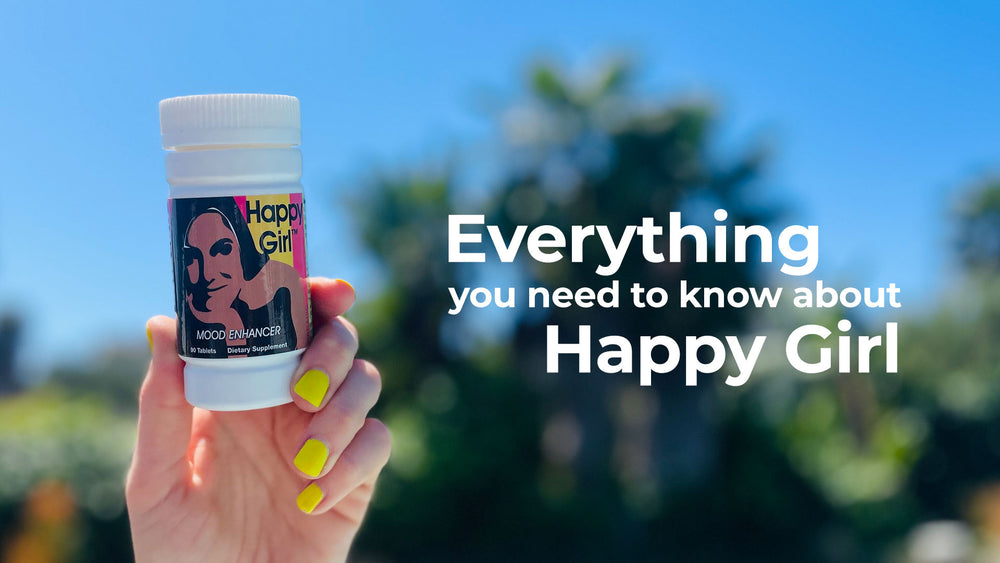In the 20th Century, teen girls often kept a diary, a small handwritten journal protected by a lock and key. It was a way for girls to express their deepest thoughts and fears without judgment. The modern version of a secret diary is called a journal.
Adults as well as teens can benefit from keeping a journal today. Journaling is more than writing down what happened to you on a particular day. It’s about learning how to make your life better by understanding what has happened to you, what caused it, and the feelings you have about your experiences.
How Writing Helps Reduce Depression and Anxiety
Writing may help patients’ physical and mental health, according to the American Psychological Association. The way a person writes will have an effect on the outcome. A person who explores the meaning (and what lead up to) a stressful event will show an improvement, whereas, a patient who only relives the negative emotion of the event will not get better.
Patients –and people in general – who change their viewpoint about traumatic or unpleasant events get better. People who never learn to understand past events stay stuck, depressed or anxious.
A study published in the Journal of the American Medical Association involved rheumatoid arthritis and asthma patients. The subjects wrote in their journals on three consecutive days for 20 minutes each day. Some of the patients wrote about their daily plans, but 71 wrote about the most stressful thing that had happened to them.
Four months later, 70 of the 71 patients who had written about stressful events had improved on clinical and objective evaluations. They also showed more improvements in their diseases, and the neutral group stayed the same or got worse.
Journaling for 20 minutes daily is ideal. Don’t worry about spelling, punctuation, or even using proper paragraphs. Write quickly, expressing your thoughts and feelings without correcting bad grammar, sentence structure, etc. Write in your journal in a private place at a time when you won’t be disturbed (at the kitchen table before the rest of the family wakes up, for example).
Benefits of Journaling
You may be so busy from day to day with work, family obligations, errands, dealing with neighbors, friends and service people that you don’t have time to step back and think about your behavior.
A journal helps you see your life more clearly and understand why you may feel anxious, depressed or angry at various times. It can help you realize how certain what situations unfurl negative emotions, and how you can control or avoid those situations. Keeping a journal can help you control stress, depression, and recognize the triggers that cause emotional problems.
Writing a journal helps you to know more about yourself, independent of other people’s opinions. Many times, we take to heart the comments others make about our personalities without reflecting on how we feel, what we think, and what our objectives are for behaving like we do.
If you have disagreements with others, writing about the conflict can help you understand the other person’s viewpoint and help you resolve the misunderstandings.
Disadvantages of Journaling
If you’re a perfectionist, you may be concerned with your handwriting, how long the entry should be or other factors, it may be difficult to write. You may become tired writing longhand for more than a few minutes.
It’s important to write about solutions to your problems, instead of merely recounting negative experiences. If you simply write about your problems, without thinking about how to improve your life, it can make you feel even worse.
Journaling can have a negative effect on your behavior and well being if you become obsessed with it or live in your head instead of the real world all day, or dwell on negative things that have happened to you instead of looking for solutions.
Tips for Better Journaling
- Try to write everyday, even if it’s only for two or three minutes. If you’re always at your computer, you can keep your journal in a Word file, but make sure no one else has access to it. However, there are advantages to writing longhand on paper versus typing on a computer. Studies have shown that you retain more of what you write when you use a pen and paper.
- Keep a pen and paper in your purse or briefcase to jot down thoughts and feeling anywhere or anytime. (You can also use the Notes app on your phone if you’re more digitally-oriented.)
- Write about what your life is like right now and your dreams for the future. Do you have the resources to make your life better, and, if not, how can you get them?
- Include at least one thing you are grateful for each day. It will make you realize that there are always good things in your life, even when you are sad or under stress.
- Your journal doesn’t need to consist of just words. Add drawings, doodles or photos to document every day and what you want in the future.
- Write about what you see outdoors, in nature. Describe the weather, the clouds, the flowers in your neighbor’s garden and the trees in the park. Most people spend so much time indoors or looking at their Smartphones they forget to enjoy the beauty of nature. (Spending time outdoors, in the sunshine, can also alleviate depression by providing you with more Vitamin D.)
- Write a list of your favorite songs and the memories they evoke. Relive the feelings you had when the song was a part of your life, and write about what you remember from that time.
- If you have a particular goal, devote your journal to it. Work towards your goal each day, and keep track of your progress in your journal. You’ll maintain focus on your goal – and reduce depression and anxiety by being proactive.
How to Use Journaling to Work Through Negative Feelings
Examine your anger, anxiety or depression. What do you think caused it? Think about how to take your negative emotions and turn it into something positive. If you are angry and jealous because a friend stole your idea for a song, come up with an even better song, copyright it, and perform or record it. When you do this, you are learning from the experience.
You’ve learned how to protect yourself by writing and copyrighting a song before telling someone else about an idea, which anyone can use. You’ve also challenged yourself creatively by writing a new song instead of using that energy to remaining angry.
When you keep a journal, you’re acting like your own therapist. Write about your core values – the things that are most important to you in life, and use your journal to make sure you stay true to them.
As you write in your journal daily, you may notice the same negative patterns repeating themselves. If so, take a look at the conversations or activities that precede them and determine how you can change your behavior to avoid these situations.
Don’t just write about how you feel, but tell the story about what made you feel this way. Describe the people, places and things that brought you to that emotional point.
Write down all the things that make your happy if you’re feeling depressed. Use colored pencils or markers to write your lists. Recent studies show that coloring helps relieve stress in adults. A 2006 study showed that coloring and other forms of art therapy helped reduce the physical and mental pain of cancer treatment in female patients.
Coloring reduces stress by allowing you to shut off your brain and fully concentrate on one activity. The same switch takes place in meditation, where you focus on your breathing to calm yourself and “turn off” your anxious brain. Coloring can be an effective and soothing part keeping a journal.
Your Personal Story
Your journal is your personal story. Think of it as a screenplay or novel about your life and your emotional journey. It is a tool to help you sort out your feelings and make your life better. You might even consider it a DIY form of therapy.
Your journal is for your eyes only. Some people occasionally share parts of their journals online if they want feedback on a particular subject. Be aware that if you share journal entries with anyone other than a close friend or therapist you may receive criticism that upsets you. It’s best to keep your journal to yourself, or use it as a tool for visits to your therapist.
Keeping a Journal Boosts Creativity
Writing in your journal also sparks your creativity. It teaches you to communicate and store information better. You’ll learn freeform writing and how to brainstorm ideas in a relaxed manner. (Brainstorming ideas in a personal journal is quite different than brainstorming at a business meeting.) And, of course, your writing skills will improve.
Writing about one subject may often lead to ideas about minimally related or unrelated topics. You can find solutions to other problems in addition to the one you set out to address.
Even if you’re not a poet or novelist, you may even find yourself writing some profound phrases when you keep a regular journal. Creative types may be able to use bits and pieces from their journals in their fiction, non-fiction or poetry.
Building Better Habits By Keeping a Journal
A journal can help you break bad habits, such as eating junk food or not exercising enough. As you write about your day, you’ll realize how much you buy from the snack machine at work, or how long you sit at the computer playing video games. It’s hard to keep track of what you eat, your sleep habits, and other lifestyle habits that impact your life without writing it down. As you go through your busy day, you’ll forget about such things – unless you keep a journal.
Keeping a food diary has been shown to help people change their eating habits and lose more weight. It can double the amount of weight a person loses, according to a study conducted at Kaiser Permanente’s Health Center for Research in Portland, Oregon.
As you write about all aspects of your day, you’ll discover how anxiety and depression interfere with eating healthy or getting enough exercise. By discovering your triggers, you’ll be better equipped to modify your behavior and overcome bad habits.
Your emotions impact your behavior, and your behavior impacts your physical as well as emotional health. A journal will guide you to discovering the root cause of overeating or not getting enough exercise. Once you determine the reason for your bad health habits, you can correct your habits for the long-term.
Nutrition and Wheatgrass for Better Mental Health
After keeping a journal for a few weeks or months, you’ll be motivated to improve all areas of your life. Eating better and taking care of your body will also help you thwart depression and anxiety.
When you eat a healthy diet, you’ll get more valuable nutrients that will improve your mental health. Omega 3 fatty acids, which are found in fish and nuts, have been shown to help reduce depression in patients with major depressive disorder.
B vitamins, including B6, B12 and folic acid, are an excellent natural treatment for mild to moderate depression. They can also improve the efficiency of prescription antidepressants. Many foods, including pork, dried beans, red meat, milk, cheese, orange juice and poultry contain B vitamins. All B vitamins, along with the mineral magnesium, are calming, and help reduce the jitters and cluttered thinking associated with stress.
It is also helpful to take a wheatgrass supplement to help improve the symptoms of anxiety and depression a few times daily. Wheatgrass has magnesium, B vitamins and hundreds of other nutrients to make you feel more energetic and focused. Happy Girl Mood Enhancer and Mood Support from Wheatgrass Love contains wheatgrass, plus a special formula of happiness-boosting botanicals including green tea extract and gotu kola. Learn more about Happy Girl here.
















